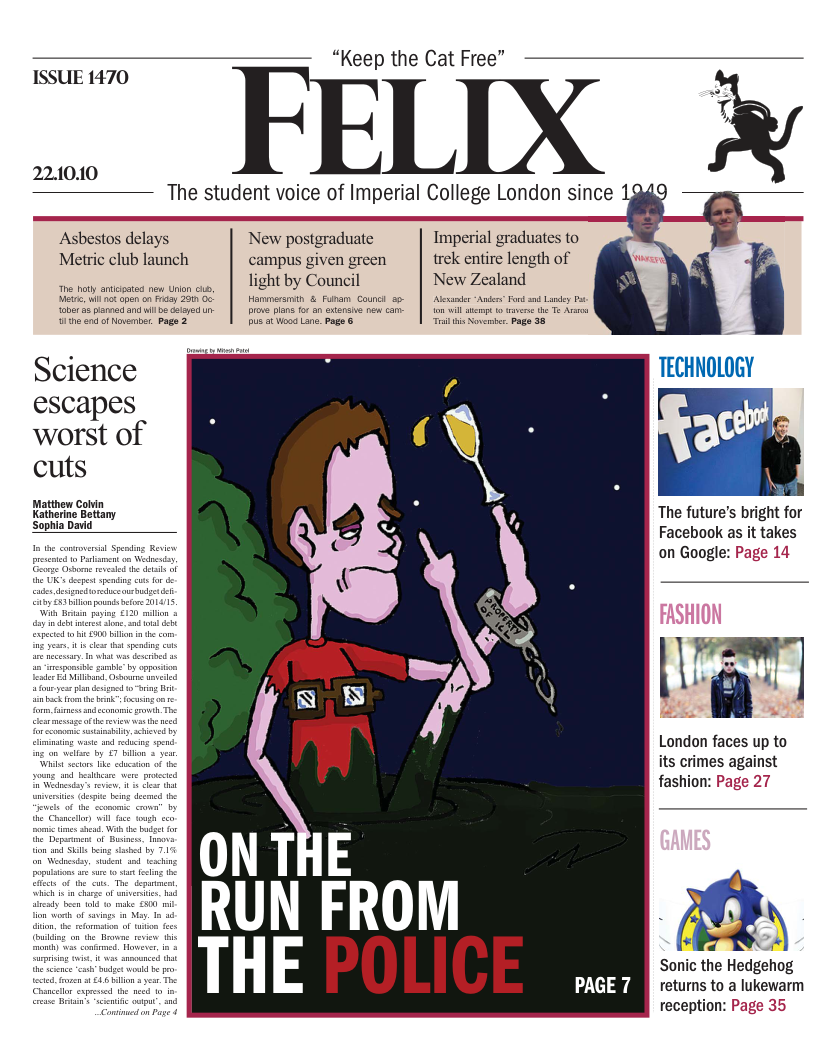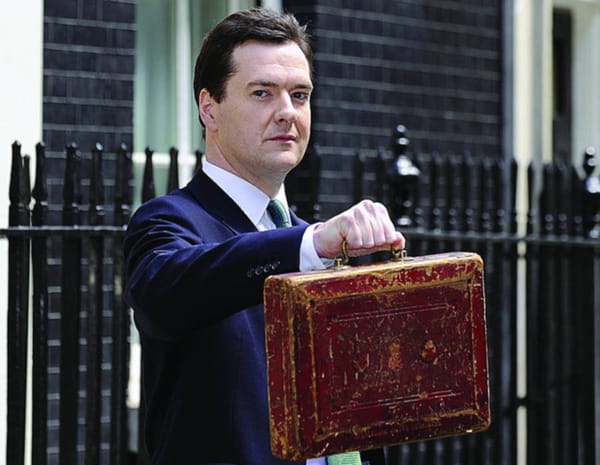Welfare cuts could pay for science!
Science funding must be protected over welfare
Wednesday’s Spending Review brought with it the news, much speculated and feared in this paper, that science spending would itself face cuts. The research budget will be frozen, which means a real terms cut of 10%; about £500 million. This may not sound like too much but it comes at a time when countries like America and Germany are increasing research spending, seeing it as key to continued economic growth. Our own business school at Imperial recently produced at report showing how investment in science research leads directly to growth in other, seemingly unconnected, sectors.
But the government says that cuts must be made and that for the sake of fairness, science must suffer too. This might seem, well, fair. But look at what has not been cut for fear of public outcry, and scientists might have reason to cry foul.
Cuts to the welfare budget never sound fair. Welfare is supposed to be for the worse off in society, people who would most likely go homeless and hungry without benefits. But welfare under New Labour extend much beyond this, and with intelligent cuts the poor can be spared any pain; and science could well be too.
Politicians, for all their perceived confidence on the podium, are timid creatures. Often, instead of fighting their corner, it is tempting to give in to tabloid headlines and instant public reaction. This is exactly what has happened over the increasingly expensive freebies handed out by the previous administration to the elderly. The government currently hands out free bus passes and TV licenses to the elderly, as well as generous winter fuel allowances.
The only requirement for these benefits is age; they are paid to the impoverished and millionaires alike, resulting in the bizarre situation wherein all pensioners receive a winter fuel allowance aimed at fighting the fuel poverty faced by only 20% of them. The same applies to the bus passes and TV licences; pensioners receiving for free services for which they could, by and large, easily pay.
By making these benefits means tested, instead of universal, George Osborne could ensure that no pensioners go without travel, TV or central heating this winter (the original intention of the benefit) while saving a whopping £9 Billion pounds.
No doubt the Left will be quick to accuse the chancellor of robbing poor pensioners; even though he isn’t. Osborne will still be reeling from his declaration that child tax credit would become means tested; he was roasted for hurting families, despite poor families keeping the credit. Perhaps here scientists, used to the struggles of convincing the public of evolution and vaccines, can empathise with the chancellor’s struggle to win the public around from their gut reactions. But his failure to address unnecessary benefits can only mean yet more cuts in other departments. If he took the leap and means tested pensioner giveaways, science could keep its budget and cuts across other departments could be reduced from 19 to 14%, according to the Institute of Fiscal Studies. That knowledge, if nothing else, should give him courage.








